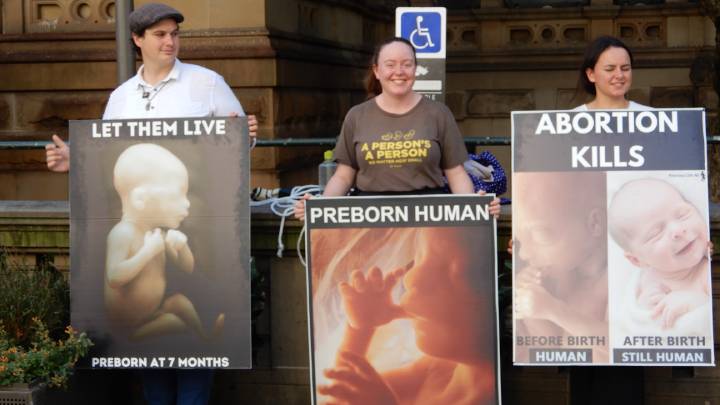How the Overturning of the US Right to Abortion Could Bode for Australia

The 1973 US Supreme Court case Roe v Wade determined that a Texas law preventing abortion unless a women’s life was in danger was unconstitutional. And this finding established a national right to abortion, which prohibits states from banning it prior to foetal viability or around 23 weeks.
This precedent has been a bone of contention for US conservatives ever since.
In September last year, as Donald Trump nominated his third Supreme Court justice over his time as US president, it was understood that the Roe precedent was under threat, as her subsequent appointment resulted in six conservative justices on the bench compared with three progressives.
This change in balance saw the court greenlight a Texas law prohibiting abortions after six weeks pregnancy in September this year, while, last week, a further decision on this law – which threatens those who perform the procedure with financial ruin – was technically in favour of the ban as well.
But it’s the ruling in another case challenging a 2018 Mississippi law that bans abortions after 15 weeks that looks set to topple the Roe v Wade precedent, as six of the judges already indicated on 1 December that they’re likely to uphold the law when the final decision is handed down in mid-2022.
And if the Roe v Wade precedent is overturned, 21 US states are set to ban or curtail abortions, with twelve of them having prohibitions in place that would automatically be triggered by such a ruling.
The rising right
The potential to see abortion rights revoked is part of a broader shift to the right in US politics, with alt-right champion Donald Trump vowing, as he entering the Oval Office, to appoint new judges that would see Roe v Wade overturned in order to appease his evangelical supporters.
The rise of Trump is indicative of a general conservative wave that’s been sweeping the globe, with other notable indications being Brexit and the growth in the vote of far-right parties across Europe, while the Modi administration in India is another example of this trend.
Abortion is just one of the issues that far-right politics holds dear, with the current wave of conservative discourse including the winding back of transgender rights, the want to express discriminatory views, keeping refugees out and opposition to same-sex marriage.
In Australia, there’s been a strong drift towards the right under eight years of Coalition governance, which has seen numerous rights-eroding national security laws passed, the ever-increasing strengthening of borders, political prosecutions and a crackdown on press freedoms.

The shift down under
Of course, the overturning of Roe v Wade has no direct impact on Australian laws. Rather all Australian state and territories will continue to have legally permitted abortions regardless of the decision in the United States.
But the impact that the overturning of Roe v Wade is likely to have here is that it will embolden anti-abortionists to campaign against current laws.
Indeed, these conservative forces are already gaining traction in this country with the Pentecostal PM Scott Morrison attempting to pass federal laws that would enshrine the right to be a bigot in the name of one’s religious faith.
While in this state, Dominic Perrottet has recently been appointed premier. And the new Liberal leader is an ultraconservative Christian, who underscored in his maiden speech when entering parliament that he respects the dignity of every human being “whether they are born or unborn”.







